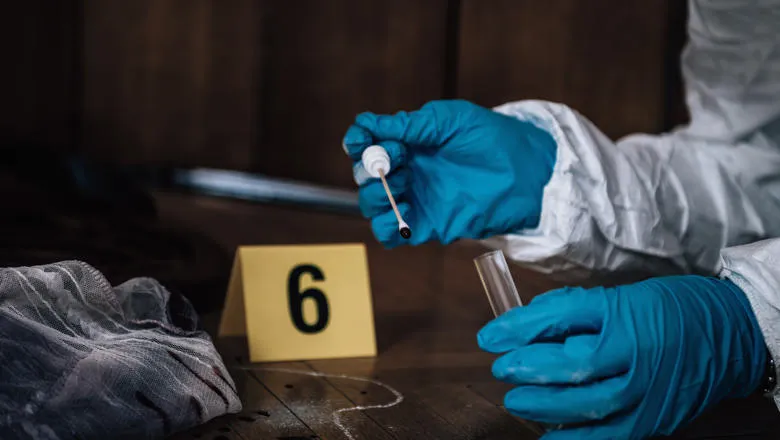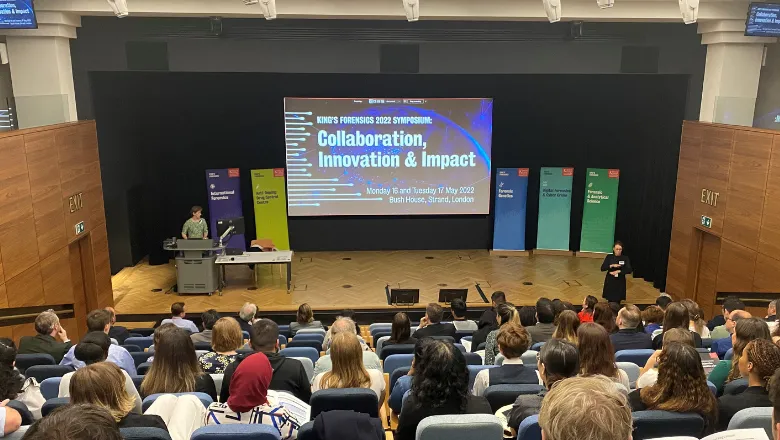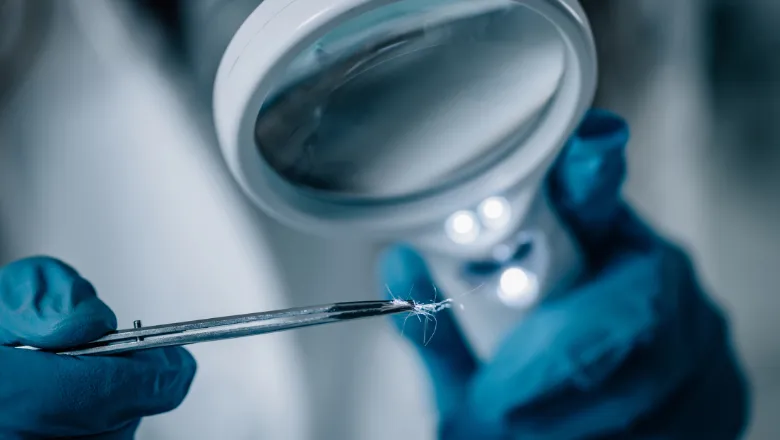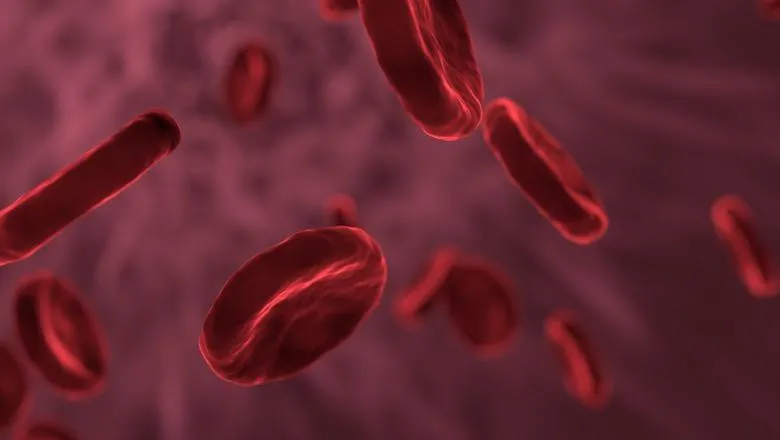
Professor Denise Syndercombe Court
Professor of Forensic Genetics
Research interests
- Forensics
Biography
Scientist, geneticist, statistician, academic, editor and published author of peer reviewed scientific publications. Editor and author of the award-winning textbook ‘Medical Science’. Trained in systematic reviews and evidence-based approaches to medical and scientific publications. Is the Professor of Forensic Genetics at King’s College London, a Chartered Scientist and a Chartered Biologist, and is a member or fellow of a number of professional bodies: Academy of Forensic Medical Sciences; Biochemical Society; British Academy of Forensic Sciences; Chartered Society of Forensic Sciences; Institute of Biological and Medical Sciences; International Society for Forensic Genetics; International Society of Blood Pattern Analysts; Royal College of Pathologists Faculty of Forensic and Legal Medicine; Royal Society of Biology; and the Royal Statistical Society. Has more than thirty years of experience in scientific research, forensic evidence examination and DNA interpretation with a sound knowledge of the civil and criminal justice process, including court presentation as an expert witness. She manages an ISO17025 accredited laboratory specialising in complex kinship and specialist DNA analysis for police forces. Denise is the UK representative on the European DNA Profiling Group and the International Society of Forensic Genetics representative on the Forensic Regulator’s DNA Working Group. Her research interests are in the use of DNA in complex and limited matrices, both human and non-human, for intelligence purposes. As a member of the European Forensic Genetics Network of Excellence was joint leader of the ethics and law work package and has since become a member of the Home Office Biometric and Forensic Ethics Group. Has an active interest in promoting science, and especially the use of DNA in justice to a wider audience via television, radio and external lectures.
Research

Forensic Genetics
Forensic Genetics is concerned with specialist ‘next-generation’ analysis of trace biological level evidence to solve crime, providing intelligence to law enforcement in forensic investigations.

InterSEC:Action
The InterSEC:Action team review to understand the nature and scale of sexual exploitation in the aid industry and conduct a pilot study using genealogy
Project status: Ongoing

Forensic Genomics: Genomic discovery of forensically relevant variation as revealed through massively parallel sequencing
Forensic genomics utilises massively parallel sequencing technologies to explore detailed information from forensic samples.
Project status: Ongoing

Forensic genetics futures and ethical considerations
The group collaborates with others to develop clear communications & robust ethical standards in association with new forensic genetics investigative approaches
Project status: Ongoing

Implementation of massively parallel sequencing technology in kinship
The project focusses on kinship testing, which is the process by which we can use inherited DNA shared between individuals to work out how/if they are related.
Project status: Ongoing

International Forensics
The international forensics group has a wide remit to look at evidence from international sources, providing data to support research in criminal justice.

Forensic Science Policy, Regulation & Practice
The Forensic Science Policy, Regulation & Practice group seeks to support policy development and set national standards based on the latest technology.
News
King's joins €4.7 million project to modernise forensic DNA analysis
King’s has been awarded a share of a €4.7 million research grant to support a groundbreaking European project aimed at transforming how DNA is used in...

Andrew MacLeod named 'Legal Hero' for work on overseas sexual exploitation
Professor Andrew MacLeod has been recognised by the Law Society for helping to bring justice to children born overseas who have been abandoned by their...

A summer of success for King's Forensics
King’s Forensics is an academic group within King’s College London that hosts a range of world-leading laboratories, including the Drug Control Centre: the...

Study of 60 cities' microbes finds each has a signature microbial fingerprint
An international consortium, including a team from King’s Forensics, has reported the largest-ever global metagenomic study of urban microbiomes, spanning...

The need for a protocol to prevent racial bias in DNA databasing
Professor Denise Syndercombe Court highlights the potential for racial bias in the way DNA profiles are collected and stored.

Blood spatters reveal a suspect's age through new technique
Researchers at King’s College London have discovered a new method of forensic analysis which could more accurately predict the age of criminal suspects based...

Events

Crossovers between natural disasters and human response activities to disaster victim identification: the carbon footprint and challenges associated with climate change
Explore the climate change and the carbon footprint related challenges in forensics, particularly with victim identification in natural disaster responses in...
Please note: this event has passed.
Features
Dog bites to kidnapping: how King's Forensics uses canine DNA to solve crime
It's not just human DNA that is used to solve criminal cases. Increasingly, DNA from canines is being carefully collected and analysed by forensics experts to...

Spotlight
Playing a part in the fight against ivory poaching
The use of new techniques for retrieving fingerprints from ivory has been validated for the first time by scientists from King’s College London and University...

Research

Forensic Genetics
Forensic Genetics is concerned with specialist ‘next-generation’ analysis of trace biological level evidence to solve crime, providing intelligence to law enforcement in forensic investigations.

InterSEC:Action
The InterSEC:Action team review to understand the nature and scale of sexual exploitation in the aid industry and conduct a pilot study using genealogy
Project status: Ongoing

Forensic Genomics: Genomic discovery of forensically relevant variation as revealed through massively parallel sequencing
Forensic genomics utilises massively parallel sequencing technologies to explore detailed information from forensic samples.
Project status: Ongoing

Forensic genetics futures and ethical considerations
The group collaborates with others to develop clear communications & robust ethical standards in association with new forensic genetics investigative approaches
Project status: Ongoing

Implementation of massively parallel sequencing technology in kinship
The project focusses on kinship testing, which is the process by which we can use inherited DNA shared between individuals to work out how/if they are related.
Project status: Ongoing

International Forensics
The international forensics group has a wide remit to look at evidence from international sources, providing data to support research in criminal justice.

Forensic Science Policy, Regulation & Practice
The Forensic Science Policy, Regulation & Practice group seeks to support policy development and set national standards based on the latest technology.
News
King's joins €4.7 million project to modernise forensic DNA analysis
King’s has been awarded a share of a €4.7 million research grant to support a groundbreaking European project aimed at transforming how DNA is used in...

Andrew MacLeod named 'Legal Hero' for work on overseas sexual exploitation
Professor Andrew MacLeod has been recognised by the Law Society for helping to bring justice to children born overseas who have been abandoned by their...

A summer of success for King's Forensics
King’s Forensics is an academic group within King’s College London that hosts a range of world-leading laboratories, including the Drug Control Centre: the...

Study of 60 cities' microbes finds each has a signature microbial fingerprint
An international consortium, including a team from King’s Forensics, has reported the largest-ever global metagenomic study of urban microbiomes, spanning...

The need for a protocol to prevent racial bias in DNA databasing
Professor Denise Syndercombe Court highlights the potential for racial bias in the way DNA profiles are collected and stored.

Blood spatters reveal a suspect's age through new technique
Researchers at King’s College London have discovered a new method of forensic analysis which could more accurately predict the age of criminal suspects based...

Events

Crossovers between natural disasters and human response activities to disaster victim identification: the carbon footprint and challenges associated with climate change
Explore the climate change and the carbon footprint related challenges in forensics, particularly with victim identification in natural disaster responses in...
Please note: this event has passed.
Features
Dog bites to kidnapping: how King's Forensics uses canine DNA to solve crime
It's not just human DNA that is used to solve criminal cases. Increasingly, DNA from canines is being carefully collected and analysed by forensics experts to...

Spotlight
Playing a part in the fight against ivory poaching
The use of new techniques for retrieving fingerprints from ivory has been validated for the first time by scientists from King’s College London and University...

